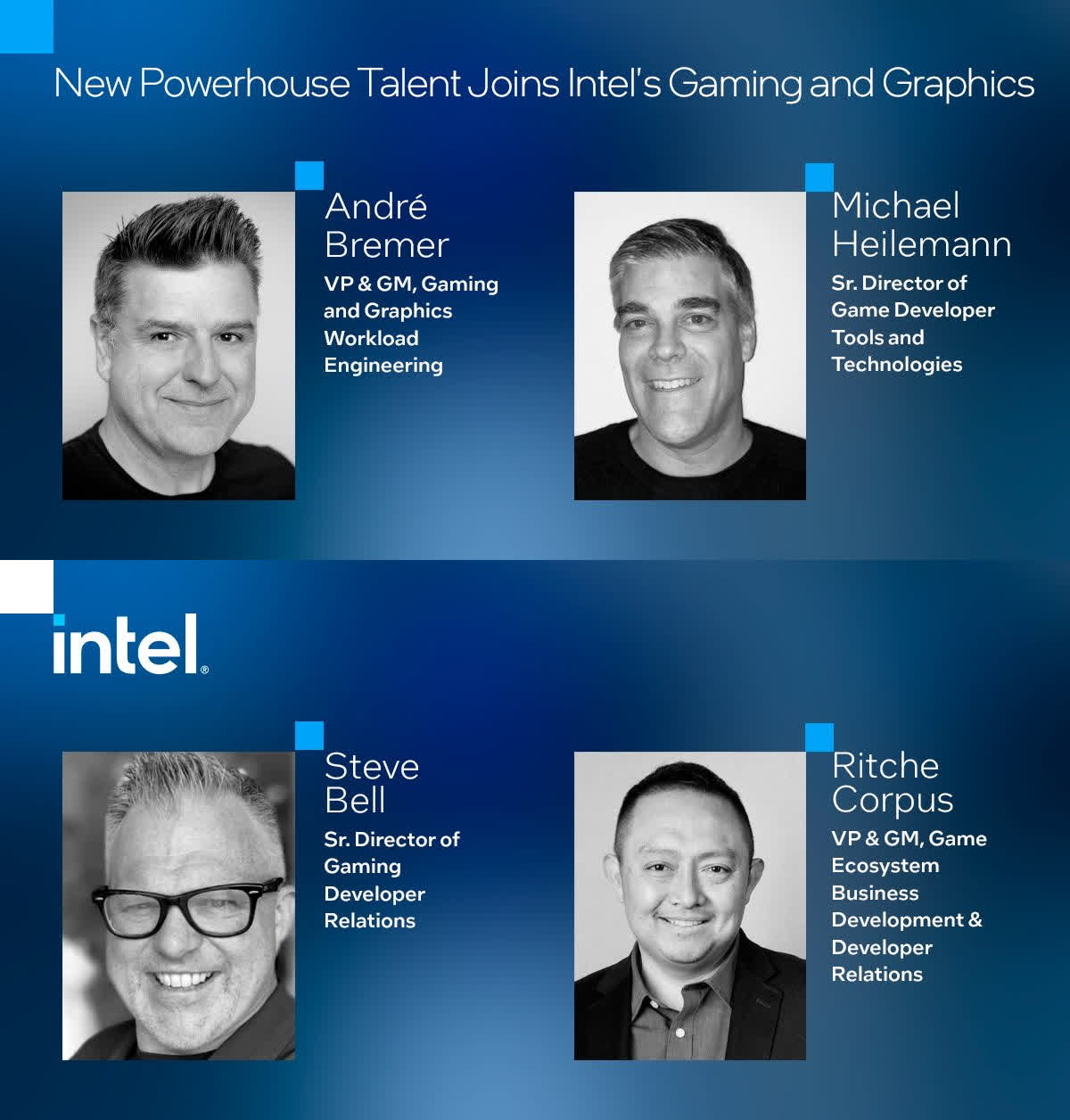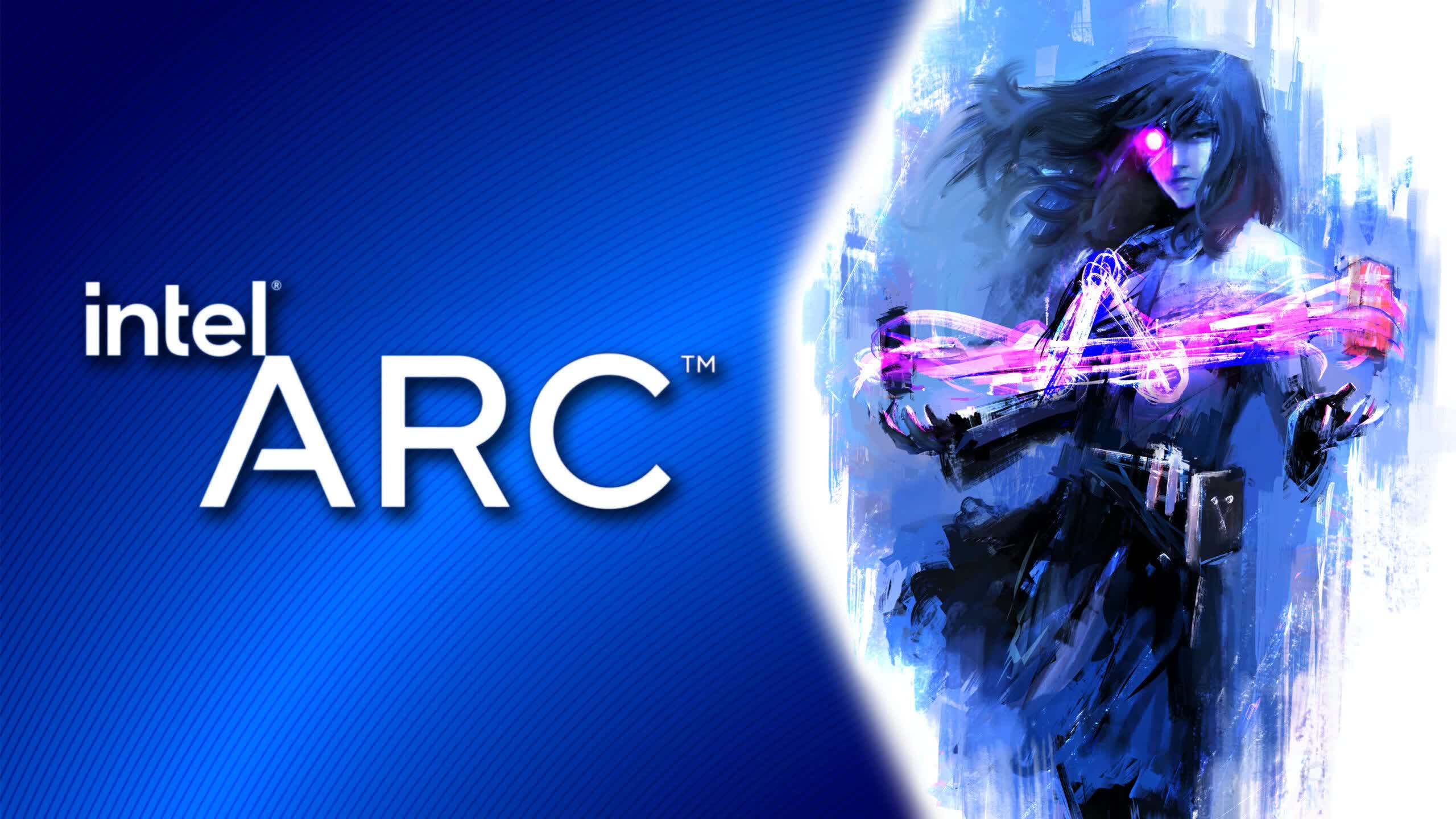Why it matters: This week Intel announced a series of high-level hires to help its first steps into PC gaming hardware. They include technical and game development managers from companies like Electronic Arts and AMD. Intel will need the experience to maintain a smooth relationship with both game developers and users.
Twitter accounts associated with Intel made the announcements on Thursday. All of them will be working in "gaming and graphics," which means Intel's Arc Alchemist graphics cards. The GPUs are expected to launch late this year or sometime next year. The company is already showing it's serious about getting into games, showing off its image reconstruction methods and even a mascot.
Intel's new gaming and graphics workload engineering vice president and general manager is André Bremer, a 20-plus-year gaming industry veteran. At Amazon, Bremer was a manager for Amazon Web Services Game Tech, and later, he worked as the head of engineering for Prime Gaming, according to his LinkedIn profile. Before that, Bremer had a long history directing development and engineering software at companies like Zynga, EA, and LucasArts.

Intel hired Michael Heilemann as its new senior director of game developer tools and technology. Heilemann was a director of technology at EA and a manager of content at Sony Computer Entertainment America. Before that, he had a game development career stretching back to the 90s in companies like Vivendi, Dreamworks Interactive, and Malibu Interactive.
Big news here! We just added some major heavy hitters to gaming and graphics here at Intel. Join us in welcoming Ritche Corpus (@Xerious), Steve Bell, Michael Heilemann (@mheilemann), and André Bremer (@andre_bremer) to the mix! pic.twitter.com/uKta1fcXHA
--- Intel Graphics (@IntelGraphics) September 17, 2021
Intel also hired Steve Bell as a senior director of game developer relations. According to Tom's Hardware, Bell worked for 13 years at Intel competitor AMD in the same position.
Lastly, Intel hired Ritche Corpus as a VP and GM of game ecosystem business development and developer relations. Corpus spent 15 years at AMD as the head of worldwide gaming and professional software. Before that, he worked at companies like PC Gaming Alliance and Logitech.
Simply building good graphics cards isn't the whole battle in the PC gaming graphics space. The two current competitors here, Nvidia and AMD, are also frequently compared based on the quality of their drivers. They work closely with game developers to ensure optimal performance on their hardware, often helping to sponsor big releases with specialty tech like Nvidia's Deep Learning Super Sampling or AMD's FidelityFX Super Resolution. Intel's new hires will likely try to ensure a similar level of cooperation with developers along with the implementation of its XeSS technology.
